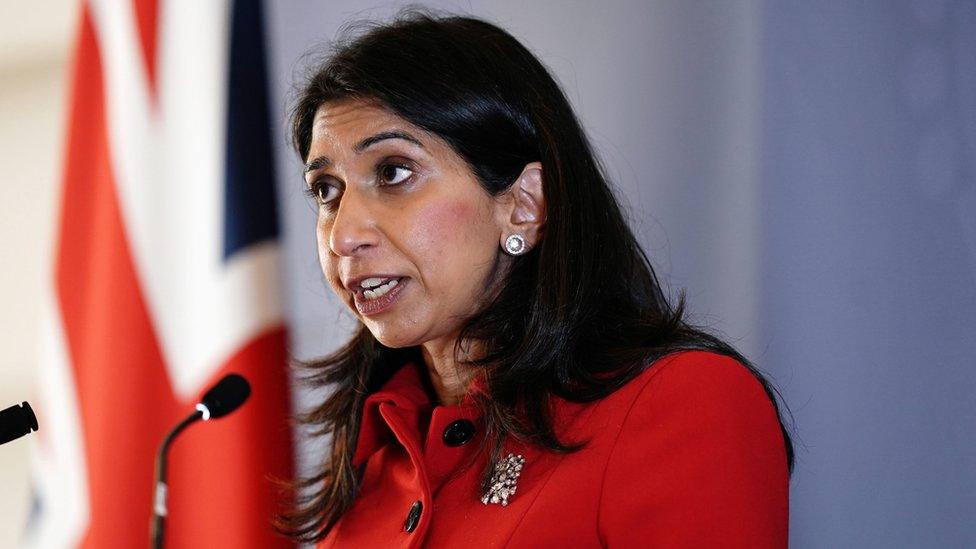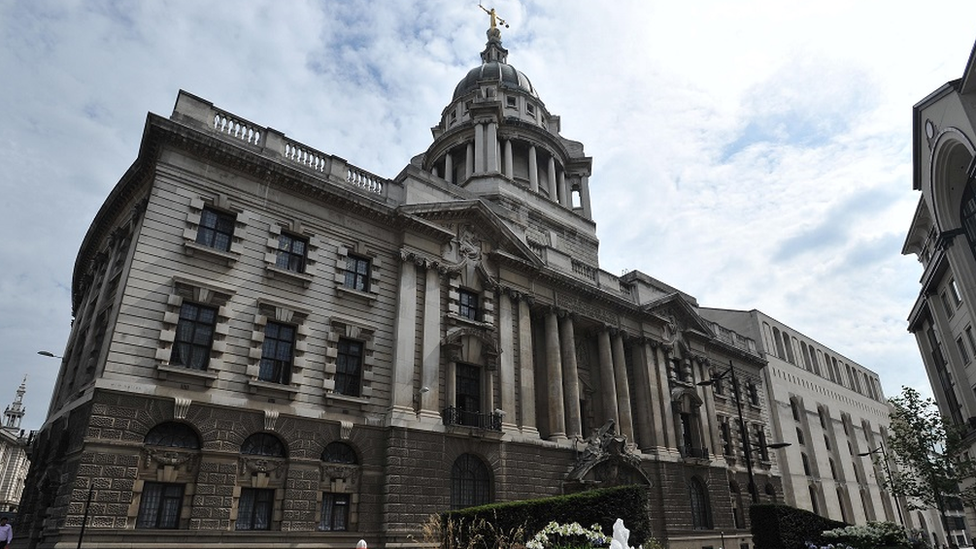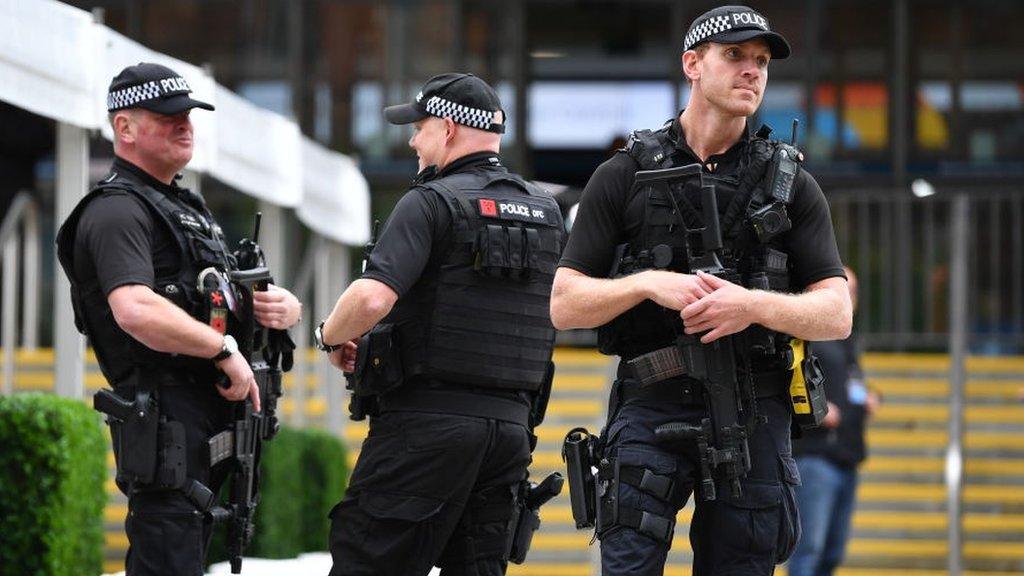UK terrorism risk is rising - Suella Braverman
- Published

Home Secretary Suella Braverman during her speech in Westminster, London, for the launch of counter-terrorism strategy Contest 2023
The Home Secretary has warned the risk from terrorism in the UK "continues to evolve and is increasing", as she unveiled her plans to prevent attacks.
Suella Braverman's counter-terrorism strategy identifies Islamic terrorism as the primary UK domestic threat, which accounted for two thirds of attacks in 2018.
Technology has also been identified as one of the biggest threats.
This includes the internet, which it deemed a global security threat.
The strategy, named CONTEST 2023, also states that convicted criminals in prison "may continue to pose a threat".
The government has updated the plan, which outlines how the government reacts to terrorist threats or emergencies, for the first time in five years.
Ms Braverman was speaking in front of a packed room in Westminster Hall, where some of the guests were survivors of UK terror attacks.
She warned that Russia, Iran, and China pose significant risks to UK security, referring to Russia as "the most pressing national security concern".
"Russia, Iran, and China have all shown themselves to be far too willing to exploit and destabilise our country," Ms Braverman told the audience.
She also confirmed that overall, terrorism from Islamic groups is the most prolific form of terrorism in the UK.
She added: "Northern Ireland related terrorism remains a significant threat. Despite the significant progress in the last 20 years, some dissident groups continue to carry out attacks."
To conclude, she said: "The threat continues to evolve and is increasing, meaning we must also evolve to keep the British people safe. We will work with the public and our international allies."
In the strategy, the Home Office states: "In the UK, the primary domestic threat comes from Islamic terrorism, which accounts for approximately 67% of attacks in 2018, about three quarters of MI5 caseload and 64% of those in custody for terrorism-connected offences."
The report goes on to say that the "domestic terror threat… is less predictable, harder to detect and investigate."
It points out there is "a persistent and evolving threat from Islamist terrorist groups overseas".
And it says there is "an operating environment where accelerating advances in technology provide both opportunity and risk to our counter-terrorism efforts."
It concludes: "It is within this context that we judge that the risk from terrorism is once again rising."
The government said it was also monitoring the risk posed by the so-called incel movement.
The incel movement is an online subculture to which multiple mass murders and hate crimes against women have been attributed.
Incel is short for "involuntary celibate". People who define themselves as incel say they can't get a sex life despite the fact that they want to be in a relationship.
The strategy says: "It is possible that violent adherents to movements and subcultures, such as Involuntary Celibacy (Incels), could meet the threshold of terrorist intent or action."
On prisoners, the strategy says: "Those convicted of terrorism, or a related offence, may continue to pose a threat; four of the nine declared terrorist attacks in the UK since 2018 were perpetrated by serving or recently released prisoners.
"Individuals convicted of non-terrorism offences may also hold a terrorist mindset or develop one during their time in prison.
"The attacks by prisoners inside HMP Whitemoor, the 2019 Fishmongers' Hall and 2020 Streatham and Reading attacks by those on probation, demonstrate the significant threat that offenders may continue to pose both in custody and on release."
The last time this strategy was published was in 2018, after a significant year of terror attacks in the UK in 2017 including the Manchester Arena bombing and London Bridge stabbing attacks. It was originally published in 2003.
Related topics
- Published7 July 2023

- Published28 March 2023
